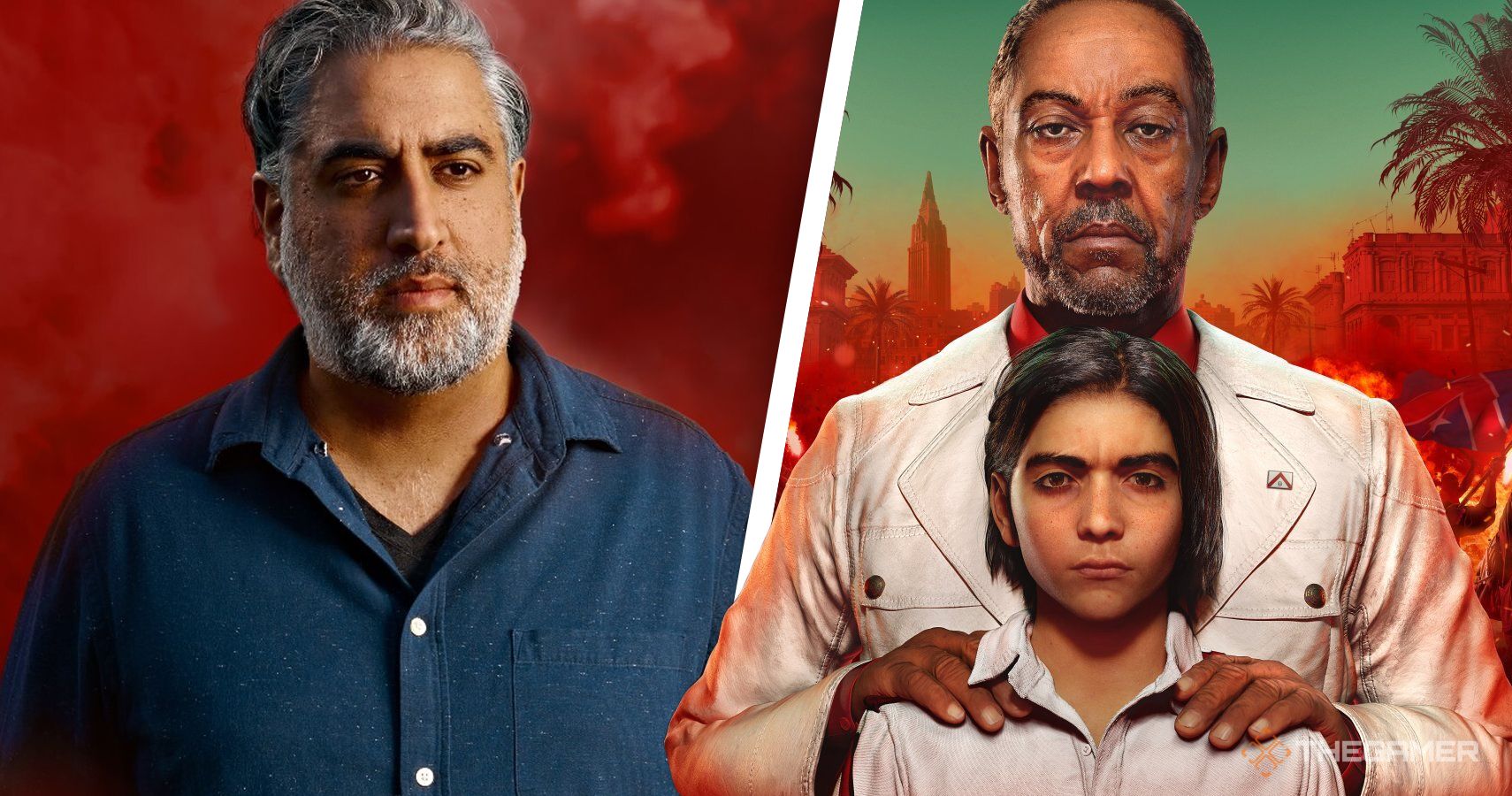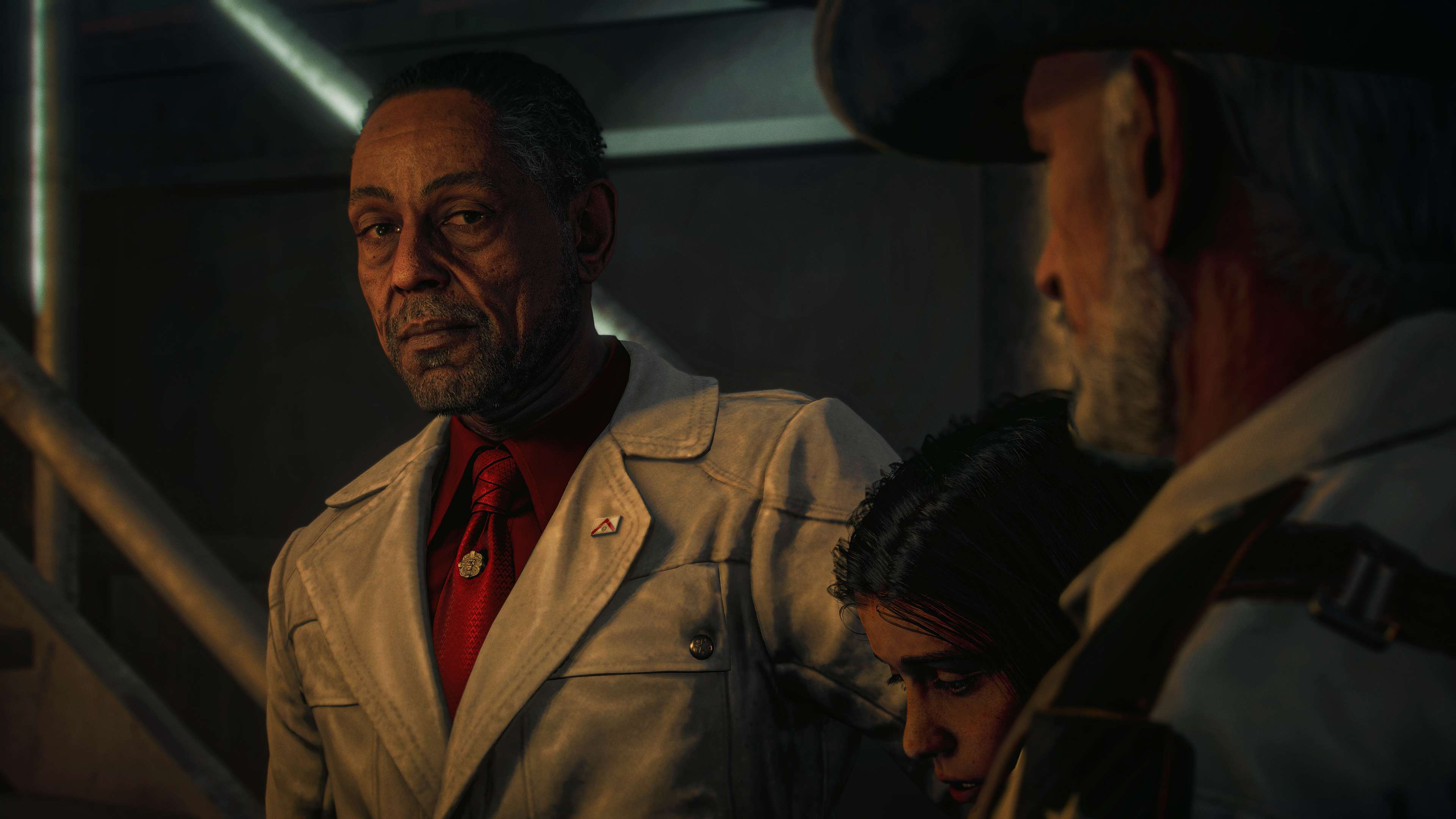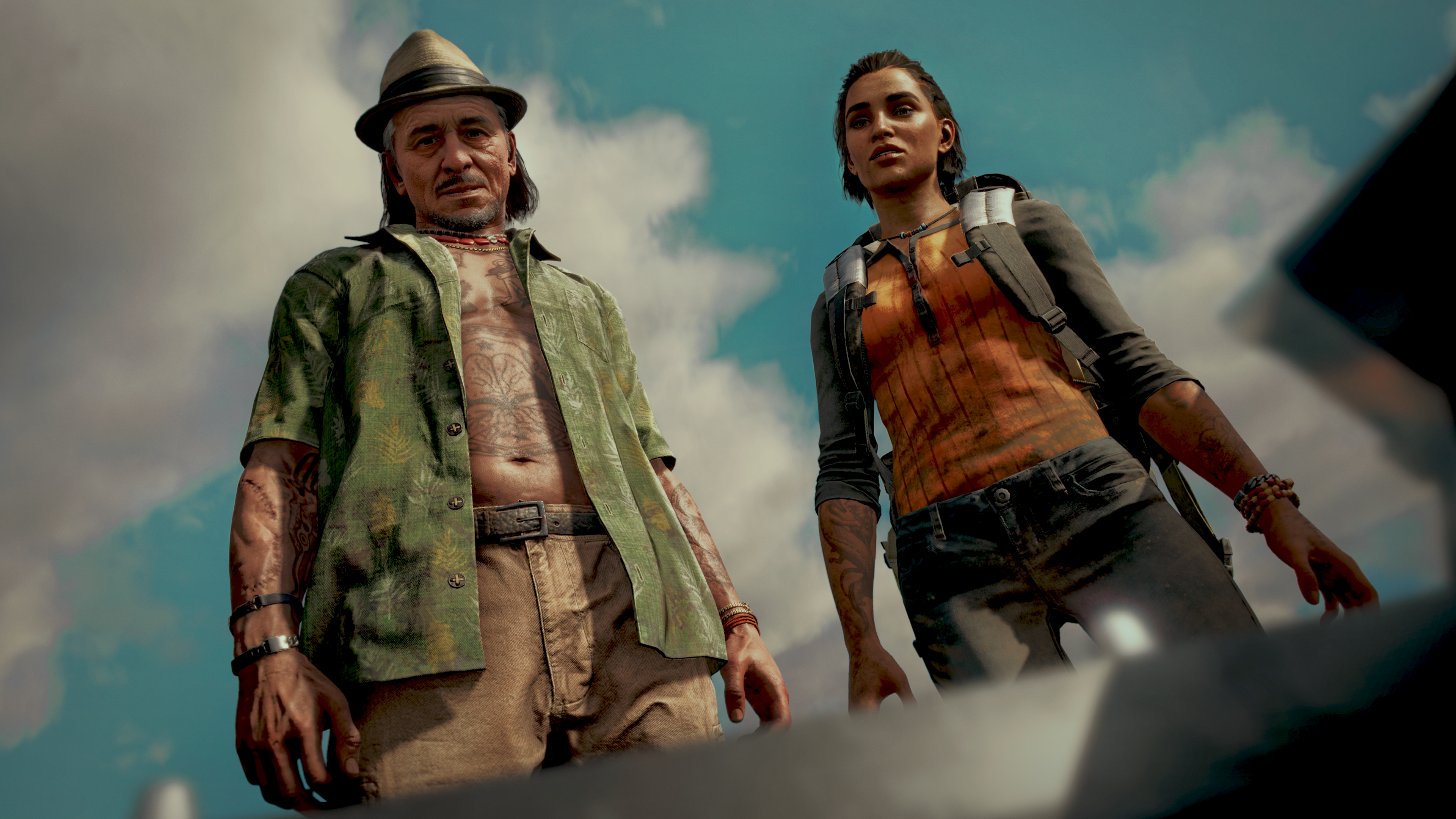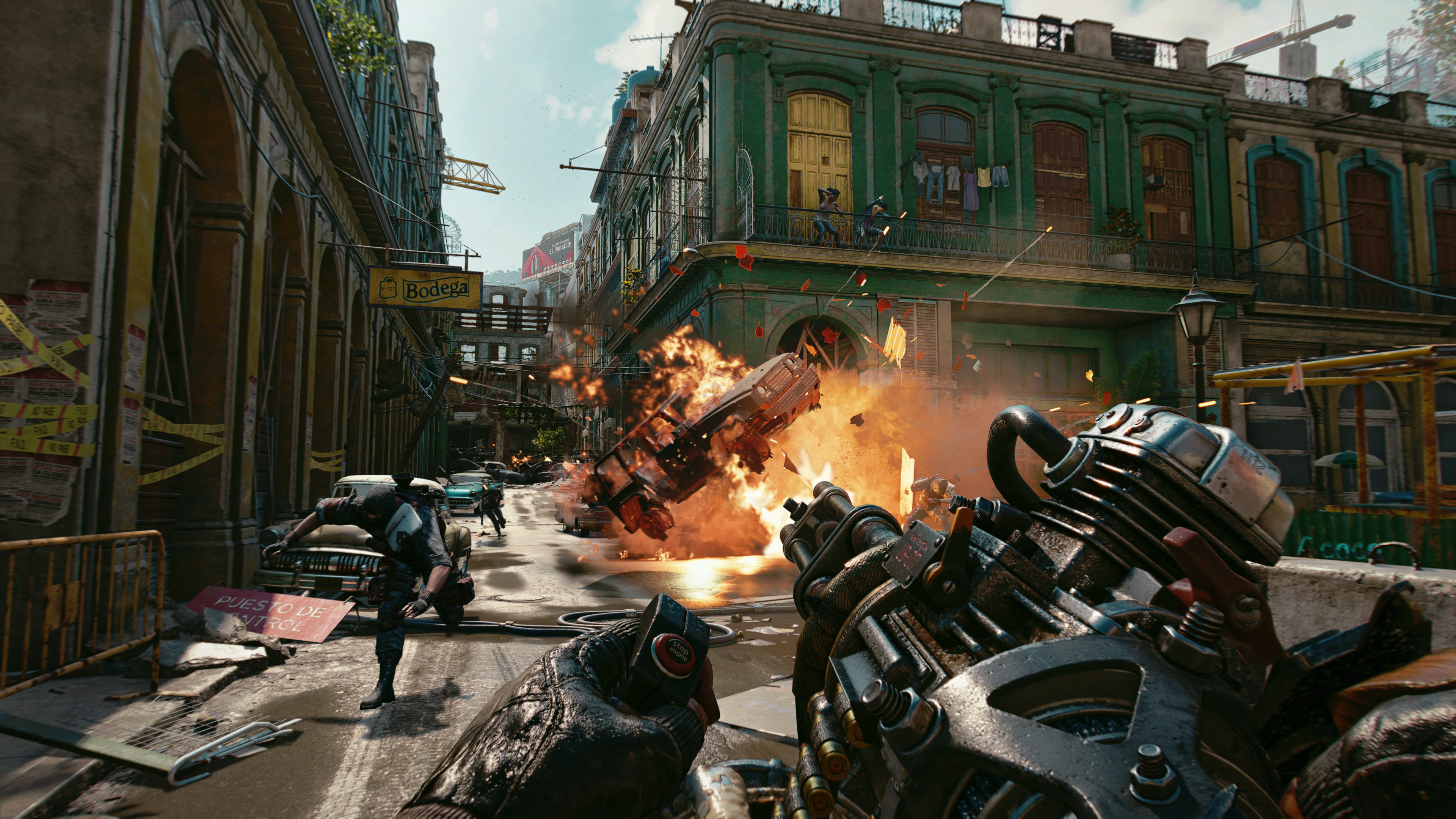“Guerilla fantasy” is Ubisoft’s big marketing buzzword for Far Cry 6, and it seems the term wants to encapsulate the patriotic fight for something greater, with disenfranchised citizens aiming to take back their home from fascist powers that loom over them. It’s a thematic statement that sits at the core of Far Cry 6 - I recently caught up with narrative director Navid Khavari to talk about the upcoming shooter and the story it hopes to tell.
Far Cry is a series known for delving into controversial themes and flirting with them instead of opting for any true engagement. Khavari tells me that this new installment “doesn’t want to make a political statement” about the real world, choosing to take place on the fictional island of Yara, which itself is heavily inspired by Cuba. Don’t expect any major shifts in the conversation with this one. “The original inspiration was guerilla warfare and what is that guerilla fantasy, which is obviously tied to revolution,” Khavari says.
“When you talk about guerillas, you think of the guerillas in the 1950s and 1960s. We actually went down there to speak to actual guerilla fighters who fought back then, and we just fell in love with their stories. But we also fell in love with the culture and people we met, and all of that. When we came out of that, it wasn’t that we felt we had to do Cuba. We realised it’s a complicated island and our game doesn’t want to make a political statement about what’s happening in Cuba specifically. Beyond that, we’re drawing inspiration from guerilla movements around the world and throughout history. For us, it felt like doing the island of Yara would help us tell that story while being very open with our politics and inspiration.”
Cuba is no stranger to the impact of revolution, and neither is Yara. You play as Dani, a character who is given greater agency than any of the Far Cry protagonists before them. A military dropout, they seek to abandon their home country, but upon seeing the chaos that has begun to unfold, they decide to stay behind and help form a grassroots revolution. “We definitely wanted to push the narrative as hard as we could,” Khavari explains. “I think it actually goes back to the idea of a guerilla fantasy. If you’re a guerilla, you’re going to have a personal stake in your country, in the land you’re fighting for, and revolution, and that idea means that [the player] has to be voiced, they have to be a local, they have to be from Yara. In order for you to have that kind of connection, it was vital to be able to do that. This meant going full performance capture with Dani, and also in terms of a storyline or arc, making sure we were honoring and doing justice to that character.”
This increased focus on the narrative also transfers into gameplay, with a third-person perspective being introduced as you navigate friendly camps and engage in cutscenes. You aren’t a faceless avatar anymore, but a freedom fighter striving for a sense of justice. But it isn’t political, Ubisoft is keen you always remember that part. Yara is a country locked away from the rest of the world, giving it free rein to engage in rampant fascism, slavery, and martial law against its inhabitants. All of this is made possible by Anton Castillo, a tyrannical leader portrayed by Giancarlo Esposito of Breaking Bad and The Mandalorian fame. He’s a daunting figure, one with immaculate screen presence, and looms as an imposing barrier to true revolution. Khavari wanted him to stand for something, much more so than previous Big Bads in the franchise.
“We really wanted Anton to have a motivation, a mindset that felt realistic that you can trace back all the way to the ‘60s and ‘70s and the previous revolution,” Khavari explains. “When Anton was a teenager he watched his father be executed. In his mind, not only is he informed by an idea of what is rightfully his has been snatched away from him, but he’s internalised this trauma, this violence that informs his perspective. So when it comes to rebuilding paradise, in his words, restoring the land back to how his father saw things. I think violence, and this institution of forced labour is to him a means to an end. It makes sense, and was something we really wanted to hone in on and expose Dani to. A revolution is complex, and the people you’re going to engage with are also complex. I use this line of philosophy, which is that every character has their own heartbeat, you just have to find it. We say villain, but Anton is a character, he’s a person. You need to get to know them.”
Compared to previous villains, Anton Castillo is infinitely more direct about his motivations, and his willingness to place an entire nation under supreme rule if it lives up to the twisted vision of victory in his mind. He seeks to pass this onto his son - Diego - who Ubisoft has assured me isn’t related to Far Cry 3’s Vaas, despite some striking visual similarities. “You’re going to have moments with Anton and Diego where the player isn’t present,” Khavari tells me. “You’re going to get a window into how he really is, how he really behaves, and how he sees the world. I think that’s something that fans are hungry for.” Sadly, it clashes constantly with the wackier side of Far Cry 6, one focused on tongue-in-cheek humour and absurd combat mechanics that don’t mesh with the darker tone of its narrative. When I asked Khavari about such issues, he directed me back to this idea of a “guerilla fantasy” that I can’t help but feel fails to understand exactly what this all means, and the weight its connotations carry.
“It’s part of the brand DNA, where we have these wild and crazy moments and contrast that with deep and meaningful storytelling,” Khavari says. “For me, approaching this, it is kind of the beauty of the guerilla fantasy. If you dig deep into what they are, and why they do what they do. From speaking with actual guerilla fighters, I sort of had this lightbulb moment where I realised their motivations are so complex. Some of them are doing it because they lost family members, some of them are doing it because they see themselves as patriots and are doing it for the flag. Some are just doing it to escape their families and shoot some guns. We have this melting pot of motivational complexity where we tried to translate that into the gameplay and the story.”
Ubisoft wants to have its cake and eat it, and such comparisons being from an apolitical perspective can come across as hollow and hurtful. Far Cry has made this mistake before, and I can’t help but feel the series would be so much more impactful if it expanded upon such themes. Perhaps it will, only time will tell, and Khavari’s optimism in the world and characters his team have created give me hope. We’ll find out for ourselves when the game launches later this year.




